
Lulicore 1% Cream
Manufacturer
Ancient Life Sciences
Salt Composition
Luliconazole (1% w/w)
Key Information
Short Description
Lulicore 1% Cream is an antifungal medicine used to treat fungal infections of the skin such as athlete's foot, Dhobie Itch, thrush, ringworm, and dry, flaky skin.
Dosage Form
Cream
Introduction
Lulicore 1% Cream is an antifungal medicine used to treat skin infections caused by many different types of fungi. It works by killing the fungi that cause these infections.
Directions for Use
This medicine is for external use only. Use it in the dose and duration as advised by your doctor. Check the label for directions before use. Clean and dry the affected area and apply the cream. Wash your hands after applying unless hands are the affected area.
Safety Information
Side Effects
No common side effects listed.
Alcohol Warning
No interaction found/established
Breastfeeding Warning
Lulicore 1% Cream is probably unsafe to use during breastfeeding. Limited human data suggests that the drug may pass into the breastmilk and harm the baby.
Pregnancy Warning
Lulicore 1% Cream may be unsafe to use during pregnancy. Although there are limited studies in humans, animal studies have shown harmful effects on the developing baby. Your doctor will weigh the benefits and any potential risks before prescribing it to you. Please consult your doctor.
Interacting Medicines
Amisulpride Aripiprazole Chlorpromazine Cilostazol
How it works
Lulicore 1% Cream is an antifungal medication that treats skin infections. It kills the infection-causing fungi by destroying their cell membrane. This relieves discomfort, itching, and irritation on the skin.
Quick Tips
Keep your feet clean and dry, particularly between the toes. Cut your nails short and prefer open-toe shoes for everyday use. Use a separate clean towel for the feet and wear clean cotton socks. Never share your socks, shoes, and towel with others. Apply an amount sufficient to cover the affected area and 1 inch of the immediate surrounding skin.
Related Medicines
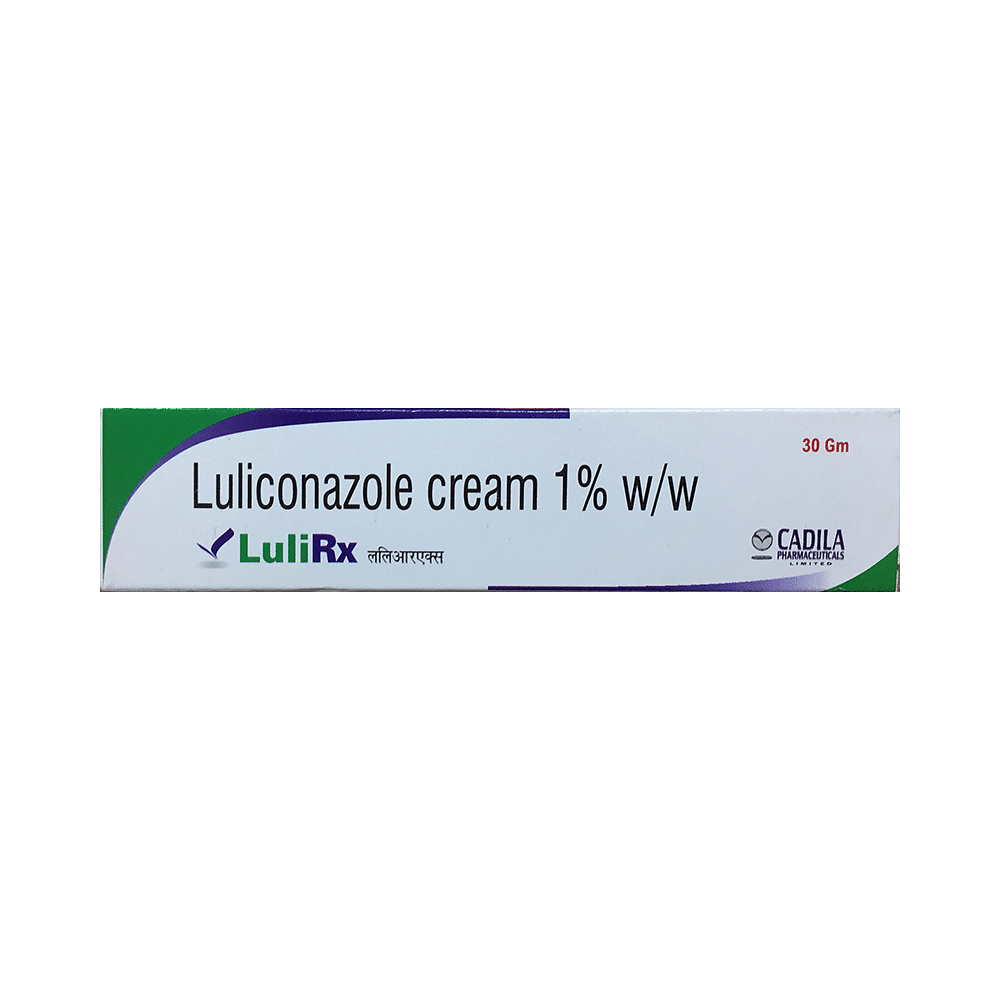
Lulirx Cream
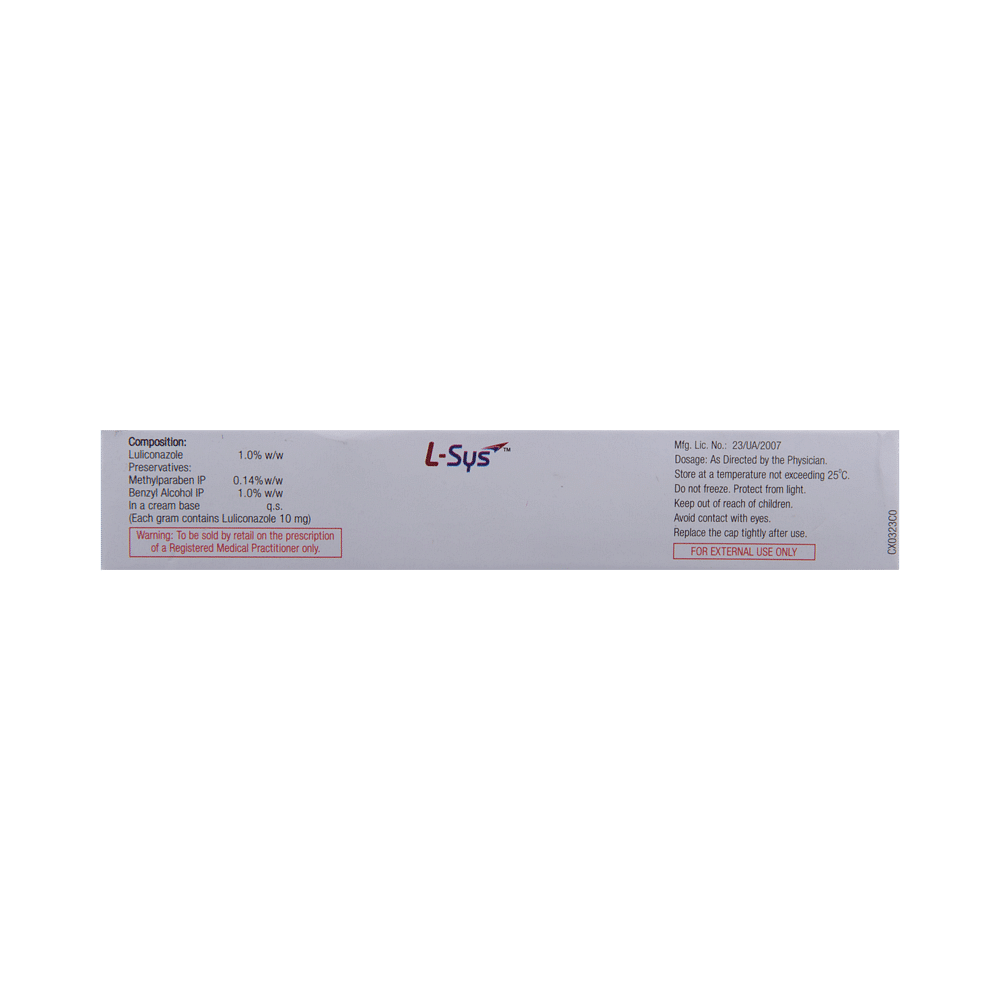
L-Sys Cream

Clocip-L Cream

LUCEE CREAM
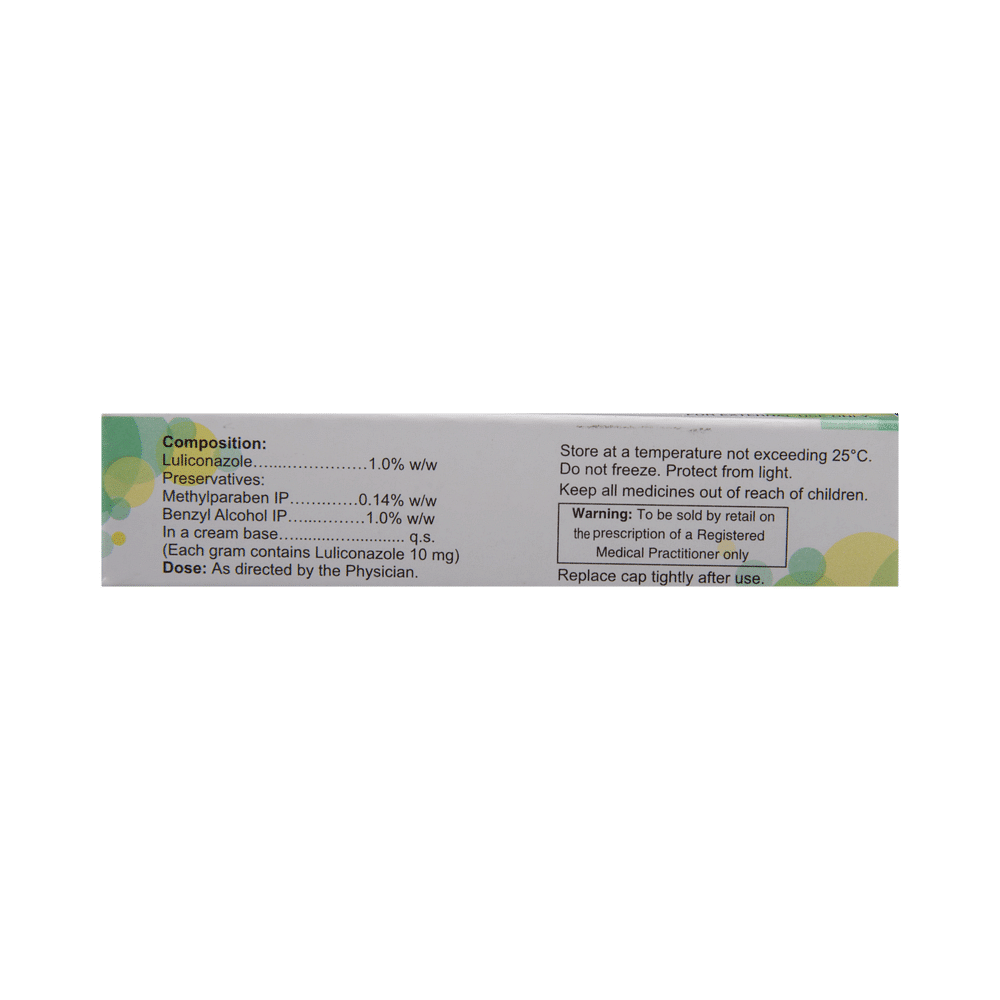
Lulibet Cream
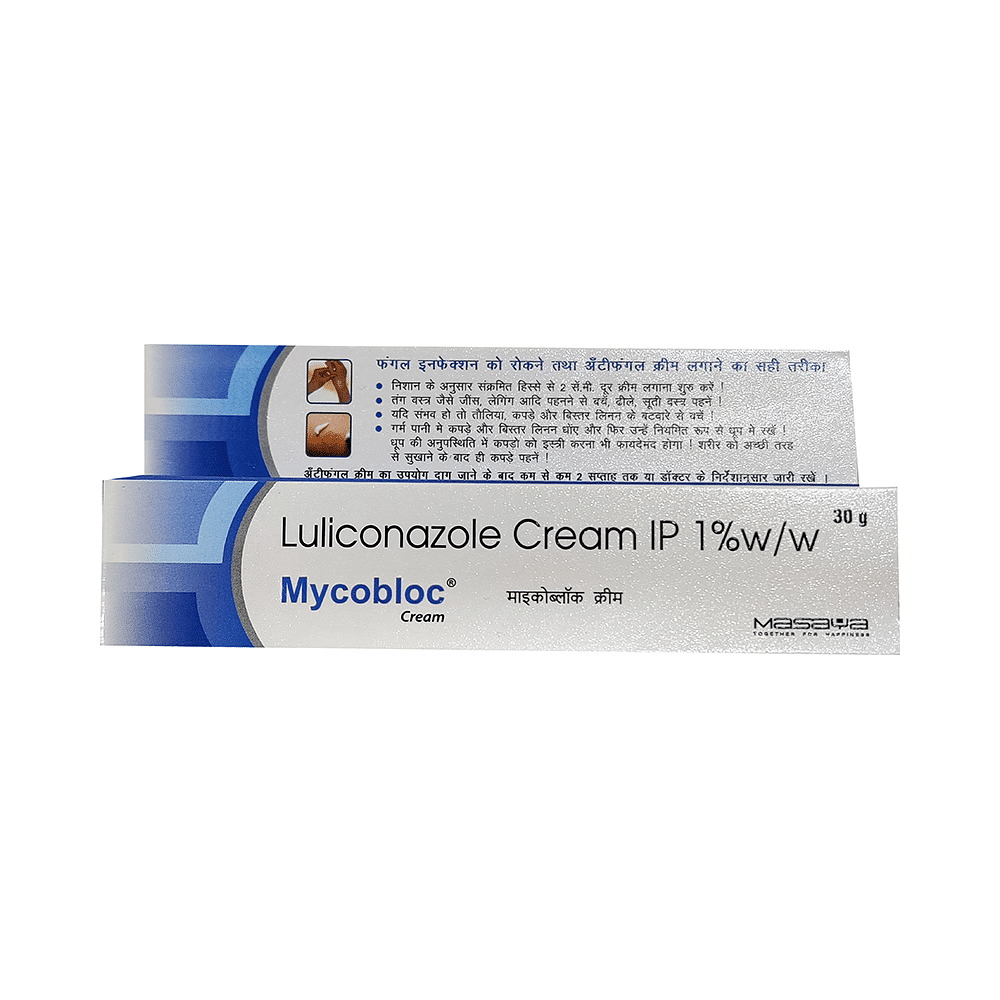
Mycobloc Cream
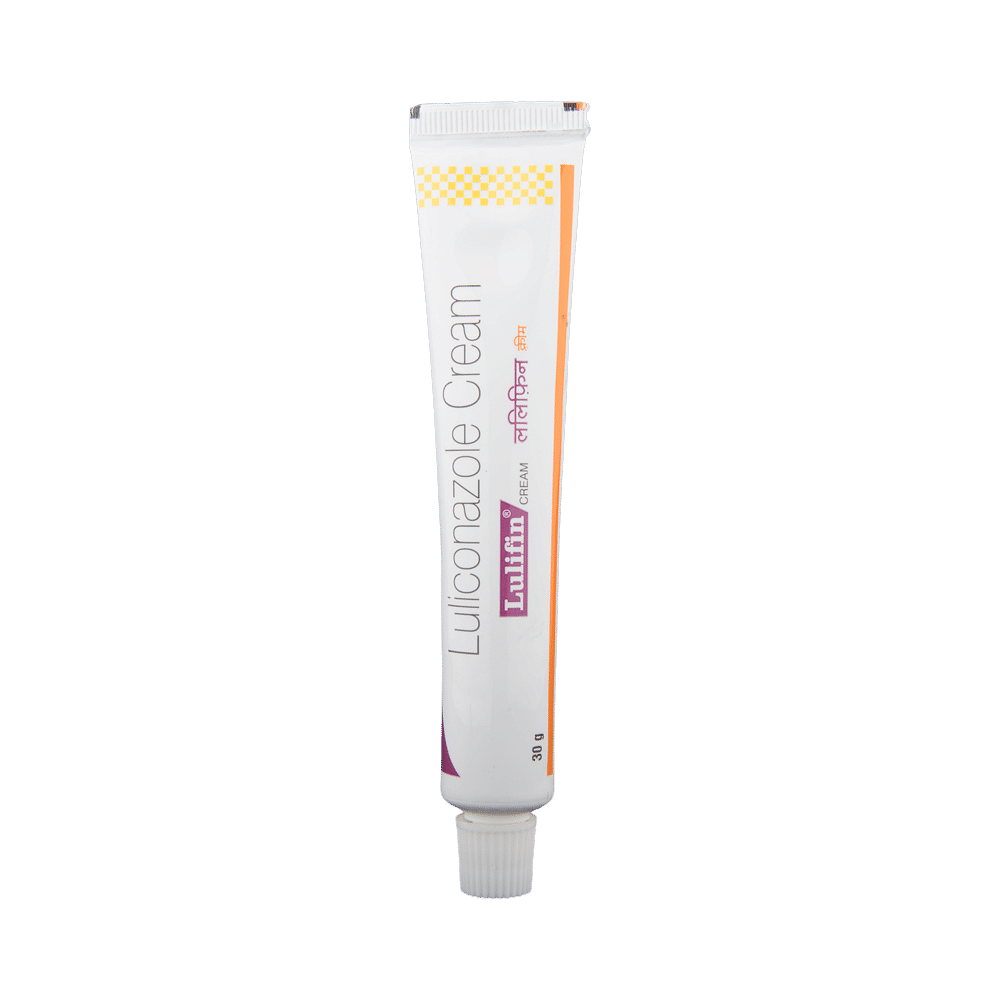
Lulifin Cream
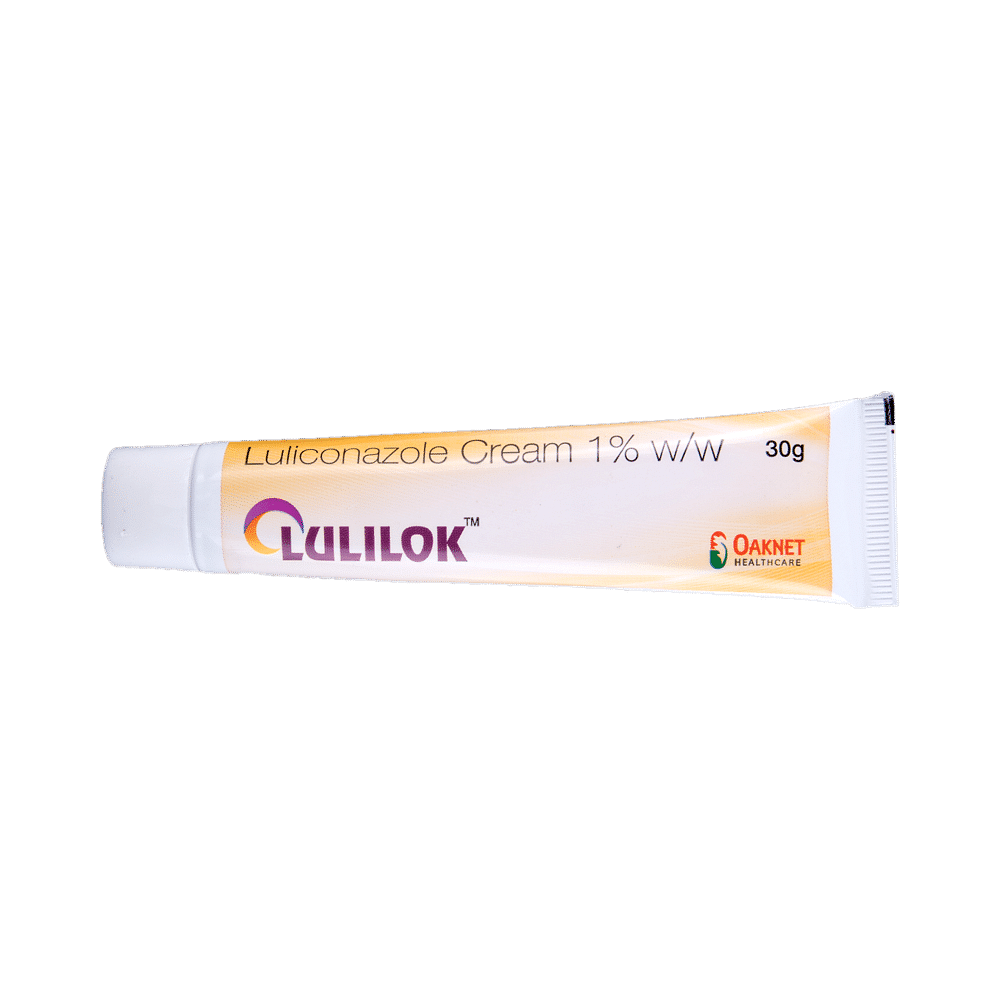
Lulilok Cream

Lulican Cream
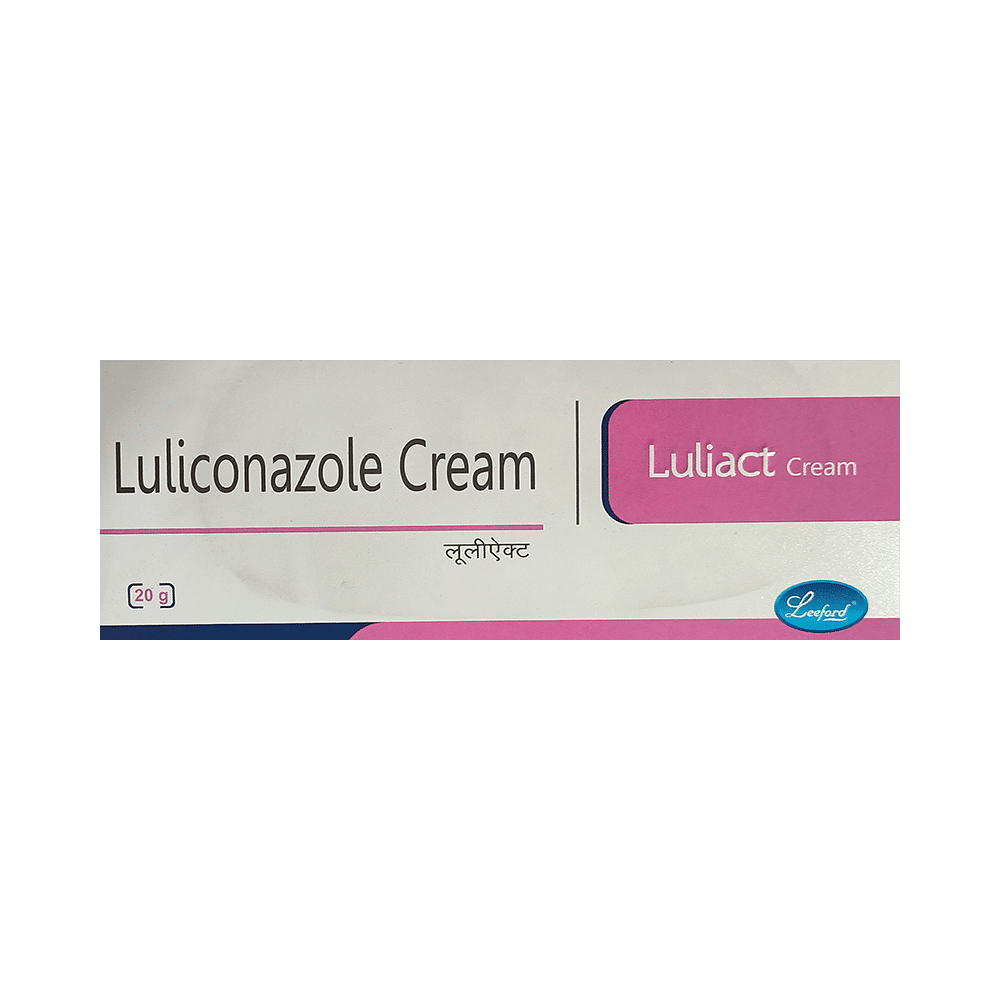
Luliact Cream
Frequently asked questions
Is Lulicore 1% Cream safe during pregnancy?
Lulicore 1% Cream should not be used during pregnancy as there is no data to support its safety in pregnancy. However, it is advisable to consult with a healthcare professional to assess the potential risks and benefits for your specific situation.
Is Lulicore 1% Cream fungicidal or Fungistatic?
Lulicore 1% Cream exhibits fungicidal properties by slowing down the growth of fungi. It inhibits ergosterol, a crucial component in fungal cell membranes, leading to its fungicidal activity.
How to use Lulicore 1% Cream?
Apply Lulicore 1% Cream exactly as directed by your healthcare professional. For athlete's foot between the toes, apply a thin layer of the medicine to affected skin areas and spread it over at least 1 inch of surrounding skin. Use once daily for two weeks. If dealing with jock itch or ringworm, apply it directly to the affected skin area and cover at least 1 inch of surrounding skin. Use once daily for one week. Always wash your hands after applying the medicine.
How long does it take for Lulicore 1% Cream to work?
The effectiveness of Lulicore 1% Cream can vary depending on the condition being treated. For athlete's foot between the toes, results are typically seen within four weeks; however, some patients may see improvement within six weeks. For jock itch and ringworm, results are usually observed in three weeks with potential duration up to four weeks.
How should I store Lulicore 1% Cream?
Store Lulicore 1% Cream in its original container. Ensure the container is tightly closed and keep it out of reach of children. Store at room temperature (20°C to 25°C) away from light, excessive heat, and moisture (not in the bathroom).
Is Lulicore 1% Cream safe for use in children?
Yes, Lulicore 1% Cream is deemed safe and effective to be used in children who are at least two years old. Safety and effectiveness have been observed across age groups from children to adults.


